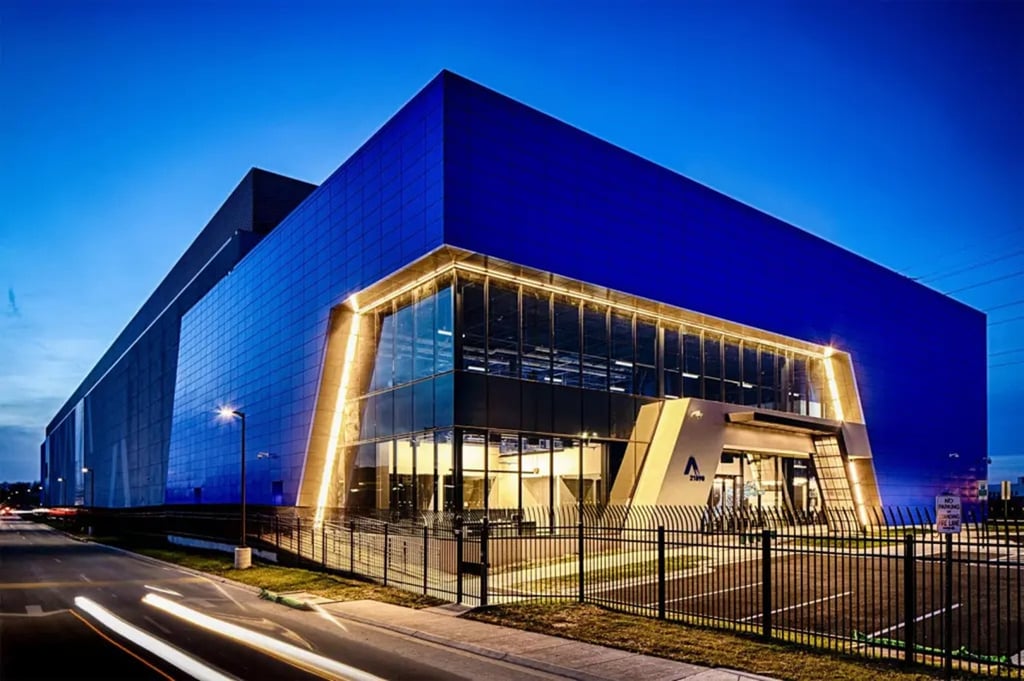Datamation content and product recommendations are
editorially independent. We may make money when you click on links
to our partners.
Learn More
Usually, I avoid making predictions. However, increasingly, I believe that the sleeper trend of 2014 will be free-licensed hardware — and that its availability could transform free and open source software (FOSS) as well as hardware manufacturing.
As 2013 closes, the trend is already well-advanced. Ubuntu Edge’s crowdfunding might have failed, but Ubuntu Touch is supposed to have a still-unnamed vendor, while the first Firefox OS phone was released in July, and Jolla released its first phone based on Sailfish OS.
Meanwhile, the newly founded MakePlayLive is developing the KDE-based Vivaldi tablet, and has released the Improv engineering board to help small developers bring their product to market. Almost certainly, others are flying under the radar.
Having FOSS on commercial devices is hardly new, of course. As Jim Zemlin, the executive director of The Linux Foundation, is fond of pointing out, Linux increasingly runs the hardware of our daily lives.
What makes these efforts different is that they are not simply cases of corporations using FOSS to speed development and shorten time to market. Instead, to varying degrees, they represent the new trend of community projects starting to manufacture hardware and entering the commercial market.
For some, the trend is a small step. Ubuntu has always been dominated by its commercial arm Canonical, while the size of Mozilla has often made it seem as much a corporation as a community.
But for others, the trend means combining the community and the commercial in a way unimagined since the idealistic days of The Cluetrain Manifesto. It not only means making devices that are as free-licensed as possible, but also attempting to graft FOSS ethics on to business. Make PlayLive, for example, sees itself as a “cooperative brand” much like a FOSS project, consisting of a group of individuals who pool their skills to accomplish what they could never do by themselves.
Many of these efforts are going to fail — not necessarily because they are flawed, but because most new manufacturing ventures fail. Manufacturers and distributors of computerized hardware are intensely conservative, and newcomers without a record of success have trouble gaining footholds. Even when they do strike deals, their products are often not promoted with the same enthusiasm as products that are the clones of popular devices.
Many, too, are entering saturated markets. Often, one effort at free hardware will be competing against others.
All the same, the very effort to create free hardware is likely to reverberate through the FOSS community. For one thing, the effort means that pockets of the community are going to have a knowledge of manufacturing that, right now, very few have. Simply by trying to market their devices, participants are going to shed the naive suspicion of business that is still a feature of many parts of FOSS community and replace it with practical, firsthand experience.
Such experience can hardly help but change the way participants interact with companies like Google or IBM, for whom FOSS is primarily one strategy among many. The community will gain negotiating strength simply by being better informed and better able to assess announcements and events. It will be able to look after its own interests better.
Furthermore, if some of this community-based capitalism succeeds, the effects will be even greater. As the number of people involved simultaneously with the community and commercial efforts increases, new roles and relationships emerge. It already sounds, for instance, as though MakePlayLive is reinventing the idea of the cooperative.
However, the greatest effect could be on the industry itself. Right now, FOSS concerns hardly register with hardware manufacturers. Corporations that benefit from FOSS rarely advocate its standards. The few who do support FOSS standards are producing devices in numbers that are too small to influence industry expectations.
But what happens if free hardware becomes a priority for dozens of small manufacturers over the next decade? Then, slowly, free hardware gains a voice in the industry, and perhaps manufacturers rethink proprietary firmware, and completely free devices become a market choice.
Yes, the idea is quixotic, even absurd. But so was free software once, and now it is a serious alternative.
The way events are shaping, 2014 could become the start of all these changes, to say nothing of others that we can’t foresee. Win or lose, these efforts at open hardware promise to renew the idealism and plans for world domination that are FOSS at its best.
Photo courtesy of Shutterstock.
-
Huawei’s AI Update: Things Are Moving Faster Than We Think
FEATURE | By Rob Enderle,
December 04, 2020
-
Keeping Machine Learning Algorithms Honest in the ‘Ethics-First’ Era
ARTIFICIAL INTELLIGENCE | By Guest Author,
November 18, 2020
-
Key Trends in Chatbots and RPA
FEATURE | By Guest Author,
November 10, 2020
-
Top 10 AIOps Companies
FEATURE | By Samuel Greengard,
November 05, 2020
-
What is Text Analysis?
ARTIFICIAL INTELLIGENCE | By Guest Author,
November 02, 2020
-
How Intel’s Work With Autonomous Cars Could Redefine General Purpose AI
ARTIFICIAL INTELLIGENCE | By Rob Enderle,
October 29, 2020
-
Dell Technologies World: Weaving Together Human And Machine Interaction For AI And Robotics
ARTIFICIAL INTELLIGENCE | By Rob Enderle,
October 23, 2020
-
The Super Moderator, or How IBM Project Debater Could Save Social Media
FEATURE | By Rob Enderle,
October 16, 2020
-
Top 10 Chatbot Platforms
FEATURE | By Cynthia Harvey,
October 07, 2020
-
Finding a Career Path in AI
ARTIFICIAL INTELLIGENCE | By Guest Author,
October 05, 2020
-
CIOs Discuss the Promise of AI and Data Science
FEATURE | By Guest Author,
September 25, 2020
-
Microsoft Is Building An AI Product That Could Predict The Future
FEATURE | By Rob Enderle,
September 25, 2020
-
Top 10 Machine Learning Companies 2020
FEATURE | By Cynthia Harvey,
September 22, 2020
-
NVIDIA and ARM: Massively Changing The AI Landscape
ARTIFICIAL INTELLIGENCE | By Rob Enderle,
September 18, 2020
-
Continuous Intelligence: Expert Discussion [Video and Podcast]
ARTIFICIAL INTELLIGENCE | By James Maguire,
September 14, 2020
-
Artificial Intelligence: Governance and Ethics [Video]
ARTIFICIAL INTELLIGENCE | By James Maguire,
September 13, 2020
-
IBM Watson At The US Open: Showcasing The Power Of A Mature Enterprise-Class AI
FEATURE | By Rob Enderle,
September 11, 2020
-
Artificial Intelligence: Perception vs. Reality
FEATURE | By James Maguire,
September 09, 2020
-
Anticipating The Coming Wave Of AI Enhanced PCs
FEATURE | By Rob Enderle,
September 05, 2020
-
The Critical Nature Of IBM’s NLP (Natural Language Processing) Effort
ARTIFICIAL INTELLIGENCE | By Rob Enderle,
August 14, 2020
SEE ALL
DATA CENTER ARTICLES









